Prepare yourself for some frightening news: you have, according to LitHub, only a finite amount of time left in your life to read. The average American, for instance, reads 12 books a year. Assuming that you’re over 25 years old, that would mean that you only have approximately 700 books — max — in your future.
Are you suddenly feeling the tightening coil of mortality? Great. If you’re now wondering where you should start, we’ve got you covered. Here are 100 books to read before you die.
If you're feeling overwhelmed by the number of great books out there, you can also take our 30-second quiz below to narrow it down quickly and get a personalized book recommendation 😉
📚
Which book should you read next?
Discover the perfect book for you. Takes 30 seconds!

1. 1984 by George Orwell
Set in 1984, Winston Smith must overcome a frightening enemy: an omniscient government with an agenda. This is the book that became a standard-bearer for dystopian fiction and introduced Big Brother into our everyday vocabulary. Perhaps the mightiest of George Orwell’s works.

2. Adventures of Huckleberry Finn by Mark Twain
A young boy and a slave in 19th-century Louisiana must find their way home — with only the Mississippi River for a guide. This slender book by Mark Twain’s is so well-regarded that it’s said by many to be The Great American Novel.

3. The Adventures of Sherlock Holmes by Arthur Conan Doyle
In 1891, Sir Arthur Conan Doyle published “A Scandal in Bohemia,” the first short story to feature Sherlock Holmes. Sharp and engrossing, this collection shows how exactly Sherlock Holmes became a cultural phenomenon and the most recognizable detective of all time.

4. The Alchemist by Paulo Coelho
Written in only two weeks, The Alchemist has sold more than two million copies worldwide — and the magical story of Santiago’s journey to the pyramids of Egypt continues to enchant readers worldwide. A dreamy triumph.

5. The Aleph and Other Stories by Jorge Luis Borges
Jorge Luis Borges’ keen insight and philosophical wisdom is on full display in this acclaimed short story collection. From “The Immortal” to “The House of Asterion,” the stories within are glittering, haunting examples of worlds created by a master of magic realism.

6. Animal Farm by George Orwell
When Old Major the boar dies on Manor Farm, two young pigs named Snowball and Napoleon rise to create new leadership in this allegorical book that is supposed to mirror the Russian Revolution of 1917 — and the ensuing Stalinist Soviet Union. Animal Farm is a stunning achievement, and not just because Orwell proved that a story about pigs can be terrifying.

7. Aesop's Fables by Aesop
This enduring collection of tales was passed down through oral tradition more than two millennia ago. More than simple stories, Aesop’s stories reflect every aspect of human nature.

8. Alice's Adventures in Wonderland by Lewis Carroll
Alice is only a young seven-year old girl when she notices a White Rabbit with a pocket watch running by. Thus begins Alice’s adventures in a land that is not all that it seems. Lewis Carroll published this novel in 1865, sending it down the rabbit hole and straight into the hallowed halls of children’s most treasured literature.

9. Anna Karenina by Leo Tolstoy
If you like lengthy books in which to immerse yourself, then this is a real treat. This epic novel tells the parallel stories of Anna Karenina and Konstantin Levin over a span of 800+ pages — dealing with social change, politics, theology, and philosophy in nineteenth-century Russia all the while.

10. Anne of Green Gables by L.M. Montgomery
To read Anne of the Green Gables is to fall in love with its characters — particularly its protagonist, a fiery young girl with an imagination the size of castles. From coming-of-age arcs to the occasional drunken episode, this beloved classic by L.M. Montgomery has it all: laughs, pain, and heart.
Looking for something new to read?
Trust real people, not robots, to give you book recommendations.
Or sign up with an email address

11. As I Lay Dying by William Faulkner
As William Faulkner attested: “I set out deliberately to write a tour-de-force. Before I ever put pen to paper and set down the first word I knew what the last word would be and almost where the last period would fall.” This is the grueling story of the Bundren family’s slow, tortuous journey to bury Addie, their wife and mother, in her hometown of Mississippi.

12. Beloved by Toni Morrison
The winner of the Pulitzer Prize in 1988 and a finalist for the 1987 National Book Award, Beloved is Toni Morrison’s magnum opus about Sethe, a former slave whose house may or may not be haunted by the ghost of the baby she had to murder. A peerless work about slavery, race, and the bonds of family.

13. The Book Thief by Markus Zusak
This children's book has an unmistakably distinct narrator — Death. Set in Nazi Germany, it follows Liesel, a young girl in her new foster care home. As the world around her begins to crumble, Liesel must find solace in books and the power of words.

14. Brave New World by Aldous Huxley
One of the giants of the dystopian genre. Having already shaken up the literary world when it was first published, Brave New World is relevant even today as it urges readers to ask questions about autonomy, hedonism, and our definition of “utopia.”

15. The Brothers Karamazov by Fyodor Dostoevsky
In a testimony to Albert Einstein's admiration of The Brothers Karamazov, novelist C.P. Snow once wrote, "The Brothers Karamazov — that for him in 1919 was the supreme summit of all literature." You can step into Einstein’s footsteps yourself by reading this powerful, stirring meditation on God and the power of free will.

16. Catch-22 by Joseph Heller
Captain John Yossarian, a U.S. Army Air Forces B-25 bombardier, longs to return home. But that is a little hard when he is situated in the middle of nowhere — or, more specifically, the fictional island of Pianosa in the Mediterranean Sea. A searing satire that is defining of its times.

17. The Catcher in the Rye by J.D. Salinger
Meet Holden Caulfield: a teenager who, with no plans in mind, decides to leave his boarding school in Pennsylvania and head back home to New York. In The Catcher in the Rye, J.D. Salinger has created perhaps the original “cynical adolescent” — and a wistful story about the meaning of youth.

18. Charlie and the Chocolate Factory by Roald Dahl
Eleven-year-old Charlie Bucket’s life is turned upside down when he finds a Golden Ticket that gives him access to Willy Wonka’s Chocolate Factory. So are young readers’ heads, as they experience the magic of the Chocolate Factory (and Oompa-Loompas) for the first time in Roald Dahl’s cherished children’s book.
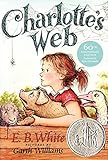
19. Charlotte's Web by E. B White
Wilbur, the runt of his litter, is spared from certain death, thanks to a little girl named Fern. But his life takes a turn when he is sold to Homer Zuckerman, who eventually plans to butcher him, and meets a kind-hearted spider called Charlotte. Charlotte's Web is a staple of children’s literature — and the bestselling children’s paperback of all time.
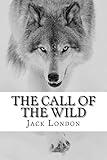
20. The Call of the Wild by Jack London
In the 1890s, a young dog named Buck hears the call of the wild. But can he answer it, especially when nature and man’s cruelty are stacked against him? This rugged, gripping novel has inspired millions of adventures for many years.

21. A Clockwork Orange by Anthony Burgess
It is an indeterminate year in the future and Alex is arrested by the government in the midst of an ultraviolent youth cultural rebellion. A Clockwork Orange is one of the most enduring examinations of good and evil, and what it means to be free to choose one or the other.

22. The Code of the Woosters by P.G. Wodehouse
Reading P.G. Wodehouse is one of the few things in life that will reliably delight. And The Code of the Woosters is Wodehouse at his sparkling best: a romp through Britain with an uproarious cast, including Jeeves, Bertie, and cow-creamers.

23. The Collected of Edgar Allan Po by Edgar Allan Poe
Edgar Allan Poe is synonymous with horror today and this is the collection that proves it. Packed with his best short stories, including “The Cask of Amontillado,” “The Masque of the Red Death,” and “The Tell-Tale Heart,” it completely presents Poe’s dark imagination and uncanny ability to capture the shadowy depths of the human heart.

24. The Color Purple: A Novel by Alice Walker
The acclaimed story of two women and the strength of their bond in the racist society of 1980s America. The Color Purple won the 1983 Pulitzer Prize for Fiction, deservedly making Alice Walker the first African-American woman to receive the award.

25. Coraline by Neil Gaiman
Young Coraline Jones has just moved into an old house when she discovers a mysterious door. What lies beyond might even be beyond the limits of your wildest imagination in this dark fantasy novella that has become a universal favorite.

26. The Count of Monte Cristo by Alexandre Dumas
Edmond Dantès, a young Frenchman, is falsely accused and imprisoned without trial in an island fortress off the coast of France — until the day he escapes and sets out to avenge himself. The Count of Monte Cristo is revenge tale for the ages.

27. Crime and Punishment by Fyodor Dostoyevsky
In this 1866 epic novel, a poor student in St. Petersburg makes the fateful decision to rob and kill an elderly pawnbroker for her money. The work that made Fyodor Dostoevsky one of the greats, Crime and Punishment remains a hallmark study of greed, morality, and the dangers of radicalism.

28. The Curious Incident of the Dog in the Night-Time by Mark Haddon
Narrated by Christopher John Francis Boone, a 15-year old with autism, The Curious Incident of the Dog in the Night-Time is the story of the night that Christopher finds a dead dog — and the fallout. Haddon invites readers to see the world through another’s eyes in this captivating mystery novel with a twist that instantly became one of the must-read books of the 21st-century.

29. The Death of Artemio Cruz by Carlos Fuentes
Lying on his deathbed, corrupt soldier and politician Artemio Cruz is surrounded by family and a priest as they attempt to coax him into confessing his betrayals and crooked dealings. The Death of Artemio Cruz is a milestone in the boom of Latin-American literature.

30. Diary of a Madman and Other Stories by Lu Xun
Inspired by Nikolai Gogol’s short story of the same title, “Diary of a Madman” made Lu Xun one of the leading Chinese writers of his time. But there’s more to Xun than just “Diary of a Madman,” as evidenced by this complete collection of his short stories.
Are you craving more short story collections like Diary of a Madman and Other Stories? You can get your fill in this post that has 21 of the best short story collections.

31. Anne Frank: The Diary of a Young Girl by Anne Frank
Anne Frank was 13 years old when she and her family went in hiding. Of the diary that was published posthumously by Frank’s father, John F. Kennedy once said: "Of all the multitudes who throughout history have spoken for human dignity in times of great suffering and loss, no voice is more compelling than that of Anne Frank."

32. The Divine Comedy by Dante Alighieri
Few authors are so exalted that they’re recognized by their first names, and even fewer books are as lofty as The Divine Comedy. Dante’s journey through Hell, Purgatory, and Heaven is a feat of imagination and an undisputed giant in world literature.

33. Don Quixote by Miguel de Cervantes Saavedra
Considered one of the greatest works in the pantheon of world literature, Don Quixote follows the ill-fated adventures of Alonso Quixano: a middle-aged man who loses his sanity and believes himself to be one of the knights in shining armor he has read about in chivalric books.

34. Dracula by Bram Stoker
A small band of friends must stop Count Dracula from coming to England and spreading the curse of the undead all over the continent. Published in 1897, Dracula boasts the original vampire and lastingly re-defined gothic fantasy.

35. Emma by Jane Austen
In Regency England, a young woman named Emma Woodhouse is determined to matchmake the friends around her. Hijinks and plenty of revelations of the heart ensue. Of her titular character, Jane Austen wrote, "I am going to take a heroine whom no one but myself will much like." But anyone who reads the book will end up falling in love with imperfect and high-spirited Emma.

36. Fahrenheit 451 by Ray Bradbury
Perhaps the singular work that doubles as both an incisive commentary on mass media and a bookworm’s worst nightmare. In Ray Bradbury’s towering dystopian masterpiece, Guy Montag is a conflicted fireman who is intimately familiar with fahrenheit 451: the temperature at which books burn.

37. Frankenstein by Mary Shelley
The grandfather of monster fiction, Frankenstein has fanned the imaginations of horror and suspense lovers around the world. Mary Shelley’s enduring legacy of a mad scientist and his tortured, anguished creation (with a badass name) is to this day considered to be the first science-fiction book ever written.

38. The Giver by Lois Lowry
12-year old Jonas lives in a seemingly utopian society. However, when he is assigned to take over as the next Receiver of Memory, he discovers that there’s more to his community than meets the eye. An astute, lyrical children’s book.

39. The Golden Compass by Philip Pullman
A retelling of John Milton’s Paradise Lost for the 21st century, The Golden Compass transports readers into a world of animal familiars, parallel universes, and brave young girls who could make a difference.

40. Goodnight Moon by Margaret Wise Brown
“Goodnight room. Goodnight moon. Goodnight cow jumping over the moon.” Beautiful illustrations and perfect rhyme have made Margaret Wise Brown’s Goodnight Moon a cherished favorite of children everywhere.

41. Great Expectations by Charles Dickens
Pip’s journey from a poor apprentice to a gentleman has become the stuff of literary legend. First published in 1861, Great Expectations remains one of Charles Dickens’ finest and most famous works.
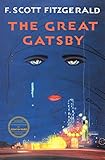
42. The Great Gatsby by F. Scott Fitzgerald
When Nick Carraway settles down in decadent 1920s New York for a summer, he has no idea what awaits him in the booming parties, Daisy Buchanan, and the mysterious figure at the center of it all, Jay Gatsby. In The Great Gatsby, F. Scott Fitzgerald has crafted a masterwork for the ages and a haunting contemplation of the American Dream.
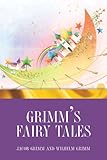
43. Grimm's Fairy Tales by Jacob and Wilhelm Grimm
Often said to be Disney for grown-ups. Beware: Grimm's Fairy Tales are much crueler and cruder than the stories that most children know.

44. Gulliver's Travels by Jonathan Swift
Savage and brilliant, Jonathan Swift bends his satirical eye on humankind himself in Gulliver’s Travels. Gulliver's Travels is one of the bestselling parodies of all time for a reason.

45. Hamlet by William Shakespeare
Who is Hamlet, Prince of Denmark — and is he truly seeing the ghost of his father or is he going mad? William Shakespeare’s most famous work boasts not only one of the most quoted lines in history (“To be or not to be”), but also the complex character who ever belonged on stage (Hamlet).
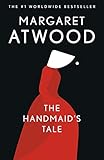
46. The Handmaid's Tale by Margaret Atwood
In this terrifying vision of the future, Margaret Atwood imagines a society governed by gender discrimination. More than a tour de force in the dystopian genre, The Handmaid’s Tale is a grim, evergreen inquisition of identity, marriage, and what it means to be free.

47. Harry Potter by J.K. Rowling
The worldwide phenomenon of the boy who lived is known by pretty much every child and adult alive today, but if you haven’t given it a chance yet, this is the time to do it. Follow eleven-year-old Harry, Ron, and Hermione as they grow up, study magic, and learn how to defeat the Dark Lord — and try to make it out alive.
Have you read Harry Potter and you're not sated yet? Don't forget to check out these 20 great books like Harry Potter.
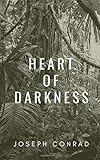
48. Heart of Darkness by Joseph Conrad
Charles Marlow is dispatched to the Congo in Africa on behalf of a Belgian trading company — but he gets more than he bargained for in the jungle’s literal heart of darkness. A grim masterpiece that catapulted Joseph Conrad among the ranks of the great writers.

49. Here's to You, Jesusa! by Elena Poniatowska
Fiery and penetrating, this passionate story of one of Mexico’s most challenging times provides the unique perspective of women in the midst of heated combat as they struggle to survive.

50. The Hitchhiker's Guide to the Galaxy by Douglas Adams
Arthur Dent is the only man who survived the destruction of Earth. Now he must journey through the galaxy, alongside an alien writer who’s working on an electronic book that’s only called The Hitchhiker’s Guide to the Galaxy.
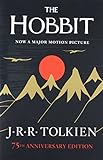
51. The Hobbit by J. R. R. Tolkien
Bilbo Baggins only wanted a peaceful dinner party. What he gets instead is something that’s not perhaps to his taste: a band of twelve dwarves in his house, a dragon to defeat, and an epic adventure. And it all begins with this iconic first line: “In a hole in the ground lived a hobbit.”

52. Holes by Louis Sachar
Stanley Yelnats is that unlucky boy who gets sent to Camp Green Lake: a Texan juvenile corrections facility where boys dig holes all day in a dried-up lake. In this popular children’s book, three storylines intertwine to solve century-old mysteries.

53. Hopscotch by Julio Cortázar
An ingenious, one-of-a-kind novel — literally. The story of Horacio Oliveira, a well-read bohemian, is divided into 155 chapters that can be read in multiple orders: sequentially or by following the suggested reading guide, which prompts readers to jump around various chapters and makes 99 of the 155 chapters expendable.

54. The Iliad by Homer
Having been born into an age of heroes and warriors, Homer created a work of art that was deserving of them. Relive the fall of Troy and the glory of Achilles in this epic poem that has survived for a couple thousand years and counting.

55. Invisible Man by Ralph Ellison
A young black man grows up in the South before moving to New York and becoming a spokesman for “the Brotherhood” in 1950s Harlem. Invisible Man is key part of American literature that probingly examines racism, black identity, and why some are more invisible in society than others.

56. Jane Eyre by Charlotte Brontë
This landmark novel that re-defined narrative consciousness centers on the eponymous Jane Eyre, an orphan born in 1800s England. As Jane grows up, she takes her destiny into her own hands — which becomes particularly poignant when she meets the brooding Mr. Rochester at Thornfield Hall.

57. Journey to the Center of the Earth by Jules Verne
This definitive science fiction novel shares the story of Otto Lidenbrock: a professor who ventures to nowhere else but the center of the Earth with his nephew Axel, and Hans, a guide.

58. Les Misérables by Victor Hugo
Considered by many to be one of the most luminous literary works of the 19th-century, Les Misérables spans the tumultuous 17 years from 1815 to 1932, during which politics, justice, religion, and love all come to a head in the June Rebellion in Paris.

59. Life of Pi by Yann Martel
Pi Patel is only a young boy when his freighter to North America sinks and he’s stuck on a small lifeboat with an orangutan, a hyena — and a tiger. Dramatic, humorous, and thoughtful, Yann Martel’s book made waves when it was published in 2001.

60. The Lion, the Witch and the Wardrobe by C. S. Lewis
Lions, witches, talking fauns, and Turkish delights — oh my! C.S. Lewis’ allegorical story about the four Pevensie siblings who walk into a closet and disappear into the land of Narnia has captivated children (and adults) for decades.

61. The Little Prince by Antoine de Saint-Exupéry
Not many stories are as unanimously beloved as this short one by Antoine de Saint-Exupery. Once readers find themselves the shoes of the little prince and seeing through his eyes, they won’t be able to look away.

62. Little Women by Louisa May Alcott
The four March sisters — Meg, Jo, Beth and Amy — grow up and come of age in this seminal work of family drama. They might be women, but they are by no means little in the halls of great literature.

63. Lolita by Vladimir Nabokov
The story of Humbert Humbert’s obsessive quest for 12-year old Dolores Haze has haunted and captivated audiences for decades. Lolita is dark, sardonic, and ultimately genius study of madness and unreliability.
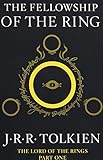
64. The Lord of the Rings by J.R.R. Tolkien
No author casts a greater shadow over one genre quite like J.R.R. Tolkien and epic fantasy. Start here with the trilogy that launched it all: The Lord of the Rings and Frodo’s quest to rid Middle-Earth of Sauron once and for all.

65. Love in the Time of Cholera by Gabriel Garcia Marquez
Florentino Ariza and Fermina Daza fell in love when they were young and were untimely torn apart by Fermina’s father. But what happens when Florentino never forgets about Fermina — and decides to make his intentions known again after fifty years of separation? Love in the Time of Cholera is a towering magical realist classic.

66. Madame Bovary by Gustave Flaubert
Who is Madame Bovary? Gustave Flaubert once replied: “Madame Bovary, c'est moi.” And so he does show through this undisputedly great novel that Madame Bovary — a longing, brutally, introspective, hedonistic woman — lives in all of us.

67. Metamorphosis by Franz Kafka
What would you do if you wake up one morning and discover that you are now an insect? Franz Kafka answers this burning question in this short novel, regarded by many as a master stroke of genius.

68. Moby-Dick by Herman Melville
Man faces off against white whale in this 700-page story that remains one of the grandest works about morality and the nature of obsession. A must-read, and not just for the adventure.

69. Mrs. Dalloway by Virginia Woolf
Clarissa Dalloway said that she would buy the flowers herself, or so begins Mrs Dalloway. More than a mere story, Virginia Woolf breathes new life into stream of consciousness storytelling in this probing, gentle, and deeply transformative portrait of one ordinary woman’s mind.
![Murder on the Orient Express[MURDER ON THE ORIENT EXPRESS][Paperback]](https://m.media-amazon.com/images/I/41ARGamkVVL._SL160_.jpg)
70. Murder on the Orient Express by Agatha Christie
The most famous of Christie’s detective stories featuring Monsieur Poirot and his formidable ‘grey cells.’ When a snowstorm grounds the luxurious Orient Express, death ensues onboard — and it’s up to the detective to piece together the puzzle, especially since everyone on the train seems to have an alibi. Looking for more books by the Mistress of Mystery? We've got you covered with the 10 best Agatha Christie books.

71. Of Mice and Men by John Steinbeck
George Milton and Lennie Small make an odd couple, working on California’s dusty ranches and dreaming of a shack of their own. But all might be lost when they move to a new farm — even each other. This is Steinbeck at his peak in this heart-wrenching story about friendship and loss. (And he didn't just write one amazing book — head to our guide to the 15 best John Steinbeck books to discover more!)

72. The Old Man and the Sea by Ernest Hemingway
In this short novel, Santiago is an old fisherman who one day happens upon a marlin that might be able to make him rich. One of Hemingway’s best, The Old Man and the Sea won the Pulitzer Prize for Fiction in 1953.

73. Oliver Twist by Charles Dickens
Young Oliver Twist is an orphaned boy living on the streets when he escapes to London in the 1800s. But that’s just the start of his story, as Oliver goes on to befriend a gang of juvenile thieves — and a pickpocket named The Artful Dodger.

74. One Hundred Years of Solitude by Gabriel Garcia Marquez
Gabriel Garcia Marquez covers seven generations of one family while exploring themes of fatalism, subjectivity, death, and time in a world where magical elements combine seamlessly with real life. One of the most important works in Spanish literature and a landmark of magical realism in its own right.

75. One Thousand and One Nights by Unknown
You might vaguely know the gist of the story behind One Thousand and One Arabian Nights, but have you ever actually read it before? This is the must-read translation, as new bride Scheherazade must wittily come up with new tales to escape her execution night after night.
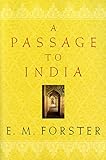
76. A Passage to India by E.M. Forster
Adela Quested is to be engaged to Ronny Moore in Chandrapore, which necessitates a journey to India in the 1920s. This novel, regarded as one of the must-read books of the twentieth century, was instrumental in launching a postcolonial discourse against the backdrop of the Indian independence movement.

77. Pedro Páramo by Juan Rulfo
In the town of Comala, where ghosts are indistinguishable from the living, young Juan Preciado goes to look for his estranged father. In his only published novel, Rulfo weaves together a story that’s told in such a way that readers are left wondering who’s truly alive and who's dead — and whether there’s more to the town than first meets the eye.

78. The Phantom Tollbooth by Norton Juster
From the mind of Norton Juster comes a magical journey. Milo is a young boy who’s beyond bored of everything — that is, until a tollbooth appears in his room one day and transports him into a land that’s the opposite of dull. The Phantom Tollbooth is a classic children's fantasy.

79. Pippi Longstocking by Astrid Lindgren
You won’t find many characters like Pippi Longstocking. Freckled, red-haired, and nine-years old, Pippi also happens to be the strongest girl in the world: she can lift a horse with one hand. Think of all the adventures she can go on with strength like that!

80. Pride and Prejudice by Jane Austen
The source of film and TV adaptations, sequels, and several hundred reimaginings, Pride and Prejudice is one of the cornerstones of English literature. Through wit, sarcasm, and humor, this 19th-century novel centers on the five unmarried (gasp!) Bennet sisters while exploring themes of family, society, and, yes, love.

81. The Remains of the Day by Kazuo Ishiguro
Stevens, a butler in post-World War II England, takes a trip through the countryside. This celebrated novel is all the more powerful for its deceptive simplicity, as it shows that the quietest stories are sometimes the most dangerous.

82. Romeo and Juliet by William Shakespeare
Shakespeare’s masterpiece tells the story of two young lovers separated by a bitter family feud. Featuring one of the most well-known couples ever, Romeo and Juliet has launched a legion of fans.

83. A Series of Unfortunate Events by Lemony Snicket
The Baudelaire siblings have the worst luck ever. No wonder their stories are called A Series of Unfortunate Events. First their parents die in a fire, then they are shipped off to a remote house — and then they discover that their new caretaker, Count Olaf, wants to kill them! Now they must have their wits about them and rely on each other more than ever if they are to survive Count Olaf’s schemes.

84. The Shadow of the Wind by Carlos Ruiz Zafón
Young Daniel Sampere finds The Shadow of the Wind in the Cemetery of Forgotten Books. In this story-within-a-story, Daniel uncovers the mystery behind the book’s author and must now protect it from someone who’s determined to burn every single copy in existence.
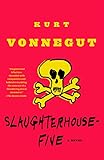
85. Slaughterhouse-Five by Kurt Vonnegut
Under Kurt Vonnegut’s sure touch, Billy Pilgrim’s journey through time during World War II is rendered scathingly well, making Slaughterhouse-Five one of the most greatest anti-war books ever written.

86. The Sound of the Mountain by Yasunari Kawabata
As the patriarch of his family in Kamakura, Ogata Shingo is troubled when his memory begins failing and he keeps hearing the mountains shaking in his sleep. A sparse and beautiful meditation on old age from a celebrated Nobel Prize-winning author.

87. The Stranger by Albert Camus
In Albert Camus’ own words: “In our society any man who does not weep at his mother's funeral runs the risk of being sentenced to death.” Such is the absurdity of life that Meursault faces in this dense crowning jewel of Camus’ career.

88. The Tale of Genji by Murasaki Shikibu
Dating to the early years of the eleventh-century, this ancient classic of Japanese literature is the famous portrayal of Hikaru Genji’s life, love affairs, and aristocratic customs in Heian Period Japan.

89. Things Fall Apart by Chinua Achebe
The first novel in an acclaimed trilogy, Things Fall Apart is the seminal novel of the African experience. More than that, it is a wrenching tragedy of one man’s futile fight against change as British rule overcomes the land.

90. The Three Musketeers by Alexandre Dumas
In this classic novel of adventure, d’Artagnan is a young man in search of his destiny when he joins the Musketeers of the Guard. But his life intertwines inextricably with another’s journey when he meets Athos, Porthos, and Aramis: the King’s most elite musketeers.

91. To Kill a Mockingbird by Harper Lee
Scout Finch is an ordinary girl living with her brother and father in Alabama when the arrest of a black man, Tom Robinson, upends everyone’s lives. A coming-of-age in the South becomes a gripping courtroom thriller in this Pulitzer Prize-winning book that may rank up there as one of the most beloved books of all time.
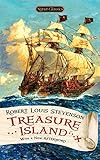
92. Treasure Island by Robert Louis Stevenson
Buried gold is the name and pirates are the game in this 1883 story by Robert Louis Stevenson, which became the definitive adventure book for many generations of readers.

93. Ulysses by James Joyce
Controversial and magnificent, Ulysses is James Joyce’s answer to the modernist movement: a puzzlingly sweeping novel that centers on the day of one Leopold Bloom in Dublin.

94. War and Peace by Leo Tolstoy
Up there as one of the greatest works ever written, War and Peace is Tolstoy’s epic account of two young men and one young woman, as they stand amidst the swirling spectre of Napoleon’s invasion of Russia in 1812.
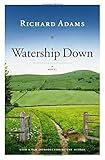
95. Watership Down by Richard Adams
Hazel, Fiver, Blackberry, and crew are the hardiest band of adventurers that you’ll ever meet, with one caveat: they’re rabbits. And they’re on the escape, looking for a new warren to call home. Watership Down is a classic for children and adults alike.
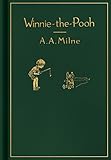
96. Winnie-the-Pooh by A. A. Milne
Haven’t you read Winnie the Pooh yet? Think, think, think! No? Gosh, you really haven’t? Oh, bother! Well, don’t worry, there’s still time to fix that catastrophic error by picking up this cornerstone of children’s literature and joining Winnie, Piglet, and friends on the journey of a lifetime.
![The Woman in White [with Biographical Introduction]](https://m.media-amazon.com/images/I/61ivzuBKJkL._SL160_.jpg)
97. The Woman in White by Wilkie Collins
A young and distressed woman dressed entirely in white one day appears to Walter Hartright, kicking off the plot of The Woman in White, often described as one of the finest mystery novels ever written.

98. The Wonderful Wizard of Oz by L. Frank Baum
Dorothy and friends go on an adventure, and who knows what awaits them at the end of the Yellow Brick Road? Frank L. Baum’s treasured classic was famously adapted into the first color film ever made, which is befitting of this whimsical, charmingly bright story.

99. A Wrinkle in Time by Madeleine L'Engle
It was a dark and stormy night… when Mrs. Whatsit walks through the door of 13-year old Meg Murry’s house, shortly followed by Mrs. Who and Mrs. Which. A bewitching, groundbreaking fantasy that's a feat of worldbuilding by a master of the genre.

100. Wuthering Heights by Emily Brontë
Emily Brontë's only novel is a staggering tour de force: a violent, gothic tragedy about the passionate, tempestuous affair between Catherine Earnshaw and Heathcliff — and the havoc that it threatens to wreak upon the moors.
